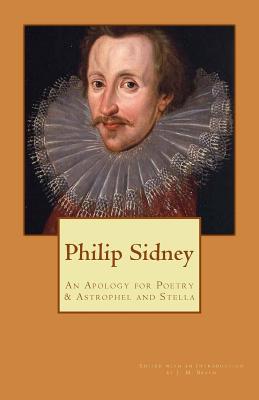Sir Philip Sidney: An Apology for Poetry & Astrophel and Stella

Sir Philip Sidney: An Apology for Poetry & Astrophel and Stella
In 16th century Europe, poetry had lost much of its cultural value. It became known as a narrow and frivolous activity, much like it is now, and it was under attack by religious authorities because it was seen as licentious or subversive. So Sidney prepared "a legal defense" of poetry, trying to restore this sacred practice to its former glory. Sidney tried to argue that poetry was not the frivolous activity that many contemporary poets were practicing. Instead, he argued that it was an ancient epistemological tradition. He tried to prove that it was a serious intellectual endeavor that embodied the Renaissance principle of "reason," every bit as important as history or philosophy. He further argued that poetry was not subversive. It supported traditional didactic, moral, and religious purposes. The poetic work of Petrarch and Sidney represented a proto-Romantic preoccupation with the heroic sufferings of the poet in love, and they expressed their romantic ideas through formulaic verse. But did the form of the Petrarchan sonnet sequence, and the romantic philosophy of Petrarch, fit Sidney's lofty definition of what poetry and the poet should be? Did Sidney live up to his own exalted philosophical vocation of the myth-poetic prophet? Or was Sidney's adoption of the Petrarchan sequence more of a verbal exercise, a formulaic offshoot of the Scholastic Latin tradition, which was heavily entrenched in Early Modern Europe? Like many poets, Sidney set himself an impossible task and he became the protagonist of a tragedy, rather than a classical hero quest. Sidney's glory comes not through triumph, but only through the artistry of his self-inflicted pain, and through the pity of a sympathetic audience. But in this pain, Sidney does move his audience with a poetic truth that captures an important message about the human condition. Thus, Sidney does seem to embody, at least in part, his lofty poetic philosophy.
PRP: 116.17 Lei
Acesta este Prețul Recomandat de Producător. Prețul de vânzare al produsului este afișat mai jos.
104.55Lei
104.55Lei
116.17 LeiIndisponibil
Descrierea produsului
In 16th century Europe, poetry had lost much of its cultural value. It became known as a narrow and frivolous activity, much like it is now, and it was under attack by religious authorities because it was seen as licentious or subversive. So Sidney prepared "a legal defense" of poetry, trying to restore this sacred practice to its former glory. Sidney tried to argue that poetry was not the frivolous activity that many contemporary poets were practicing. Instead, he argued that it was an ancient epistemological tradition. He tried to prove that it was a serious intellectual endeavor that embodied the Renaissance principle of "reason," every bit as important as history or philosophy. He further argued that poetry was not subversive. It supported traditional didactic, moral, and religious purposes. The poetic work of Petrarch and Sidney represented a proto-Romantic preoccupation with the heroic sufferings of the poet in love, and they expressed their romantic ideas through formulaic verse. But did the form of the Petrarchan sonnet sequence, and the romantic philosophy of Petrarch, fit Sidney's lofty definition of what poetry and the poet should be? Did Sidney live up to his own exalted philosophical vocation of the myth-poetic prophet? Or was Sidney's adoption of the Petrarchan sequence more of a verbal exercise, a formulaic offshoot of the Scholastic Latin tradition, which was heavily entrenched in Early Modern Europe? Like many poets, Sidney set himself an impossible task and he became the protagonist of a tragedy, rather than a classical hero quest. Sidney's glory comes not through triumph, but only through the artistry of his self-inflicted pain, and through the pity of a sympathetic audience. But in this pain, Sidney does move his audience with a poetic truth that captures an important message about the human condition. Thus, Sidney does seem to embody, at least in part, his lofty poetic philosophy.
Detaliile produsului










